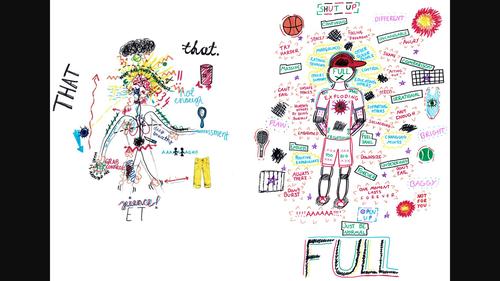Exploring young trans people's everyday experiences of ‘out-of-placeness’ and socio-bodily dysphoria
IF 3.6
1区 社会学
Q1 GEOGRAPHY
引用次数: 0
Abstract
This paper examines how young trans people come to be positioned as, and subsequently feel, ‘out-of-place’ in certain everyday spaces, particularly in the socio-political context of the contemporary UK. Through the stories of young trans people aged 14–25 collected via participatory research, I question what it feels like to be young and trans and to experience and embody such dislocating feelings as ‘out-of-placeness’ and socio-bodily dysphoria, and what toll repeatedly experiencing such embodied emotions exacts on young trans people, their bodies, and life trajectories. To do so, the experience of misgendering and deadnaming, others' hostile gazes, and what I refer to as socio-bodily dysphoria, are introduced as examples of common modes of cisnormativity and ‘out-of-placeness’ experienced by participants. I build on Sara Ahmed's work on the socio-spatial positioning and experience of non-conforming or disruptive bodies to examine how trans youth and marginalised folk more generally become ‘out-of-place’ and experience ‘out-of-placeness’ in everyday space-times that are not affectively, socially, or materially structured to expect their bodily presence, facilitate their participation, or enable their active agency, particularly on gendered terms. Importantly, a central contribution of the article involves articulating a spatial conceptualisation of socio-bodily dysphoria. In sum, I develop geographical analyses of young trans people's everyday encounters and crucially build geographical understandings of the emergence and fixity of socio-bodily dysphoria and everyday marginality through the voices and stories of trans youth.

探索变性青年对 "失格 "和社会身体障碍的日常体验
本文探讨了年轻变性人是如何在某些日常空间中,尤其是在当代英国的社会政治背景下,被定位为 "格格不入",进而产生 "格格不入 "的感觉的。通过参与式研究收集到的 14-25 岁年轻变性人的故事,我对年轻变性人经历和体现 "格格不入 "和社会身体障碍等错位感的感觉提出了质疑,并质疑反复经历这种体现情绪会对年轻变性人、他们的身体和生活轨迹造成怎样的影响。为此,我将引入误称和死称的经历、他人敌视的目光以及我所说的社会性身体不适,作为参与者所经历的顺式规范化和 "失格 "的常见模式的例子。我以萨拉-艾哈迈德(Sara Ahmed)关于社会空间定位和不合规或破坏性身体体验的研究为基础,研究变性青年和边缘化人群如何在日常空间中变得 "格格不入 "并体验到 "格格不入",而这些空间在情感、社会或物质结构上并不期待他们的身体存在,也不促进他们的参与,或使他们能够发挥积极作用,尤其是在性别方面。重要的是,这篇文章的核心贡献在于阐明了社会-身体障碍的空间概念。总之,我对变性青年的日常遭遇进行了地理分析,并通过变性青年的声音和故事,建立了对社会身体障碍的出现和固定性以及日常边缘化的地理理解。
本文章由计算机程序翻译,如有差异,请以英文原文为准。
求助全文
约1分钟内获得全文
求助全文
来源期刊
CiteScore
7.00
自引率
9.10%
发文量
72
期刊介绍:
Transactions is one of the foremost international journals of geographical research. It publishes the very best scholarship from around the world and across the whole spectrum of research in the discipline. In particular, the distinctive role of the journal is to: • Publish "landmark· articles that make a major theoretical, conceptual or empirical contribution to the advancement of geography as an academic discipline. • Stimulate and shape research agendas in human and physical geography. • Publish articles, "Boundary crossing" essays and commentaries that are international and interdisciplinary in their scope and content.

 求助内容:
求助内容: 应助结果提醒方式:
应助结果提醒方式:


